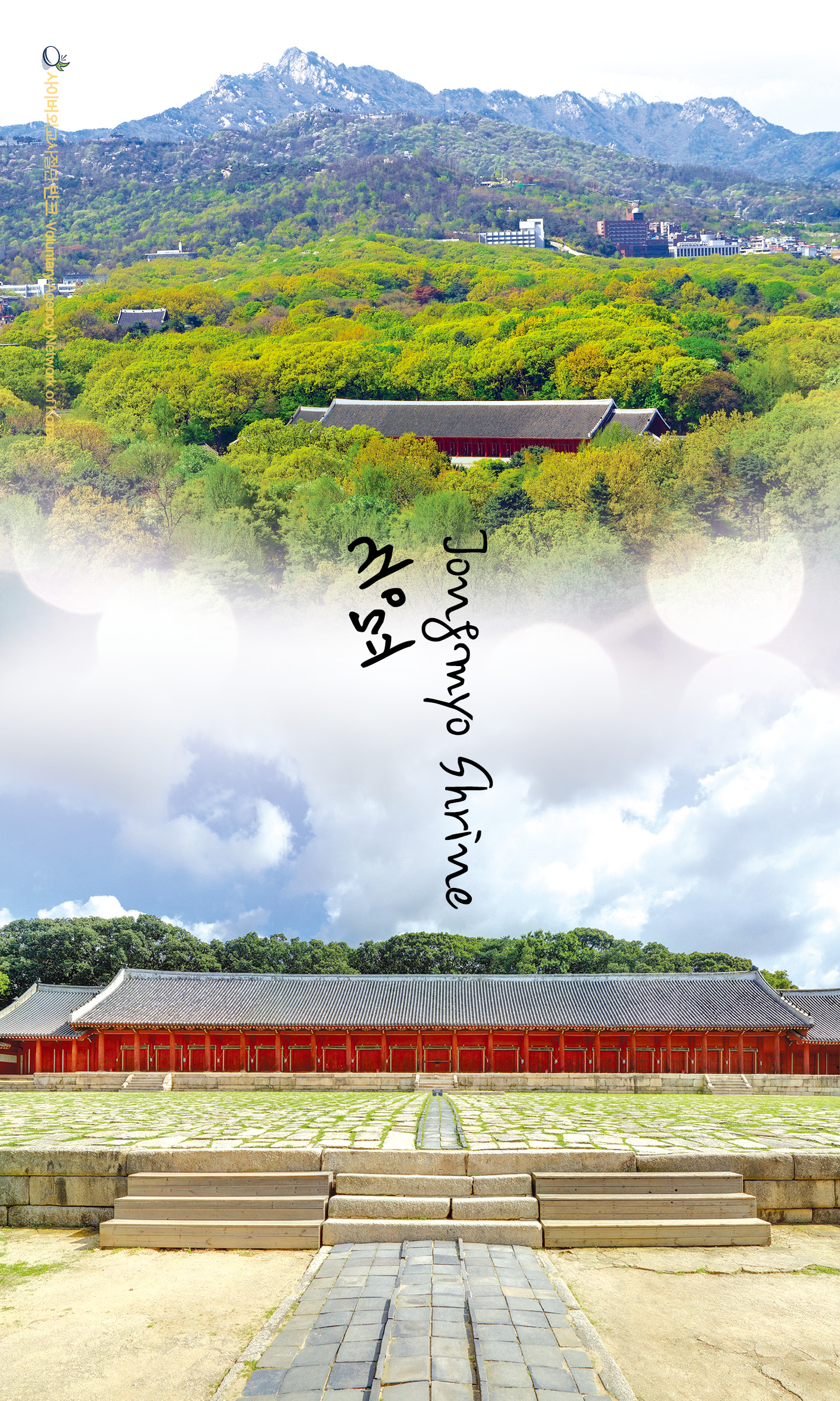 Jongmyo Shrine enshrines the spirit tablets of the kings and queens of the Joseon Dynasty (1392-1910). The Joseon Dynasty held memorial ceremonies for the ancestors of the royal family, by taking Confucianism as its ruling ideology and adopting the Jongmyo system.
Jongmyo Shrine enshrines the spirit tablets of the kings and queens of the Joseon Dynasty (1392-1910). The Joseon Dynasty held memorial ceremonies for the ancestors of the royal family, by taking Confucianism as its ruling ideology and adopting the Jongmyo system.
The most important buildings within Jonhmyo Shirne are the Jeongjeon Hall and Yeongnyeongjeon Hall, where the spirit tablets are kept and the memorial ceremonies are held. As a place for ritual event, the buildings are built in simple and concise ways with minimum decoration, but solemn. While initially built with seven rooms to enshrine the tablets, Jeongjeon Hall has been expanded to 19 rooms due to the succession of the dynasty. It is 70m long just with the rooms for the tablets and 101m long including both small side rooms and Wollang, making it the biggest architecture in the world, out of wooden buildings built in the same period. Yeongnyeongjeon Hall was built in the same way as Jeongjeon Hall, with 16 rooms for the tablets.
As the shrine dedicated to the ancestors, Jongmyo has separate doors and roads for souls to enter and exit. The doors and roads were not allowed to be used even by kings, and could only be used to carry the tablets or ritual supplies for the ceremonies. The countries taking the Confucianism as their ruling ideology mostly adopted the Jongmyo system, but no country has succeeded related architecture and ritual ceremony. The ancestral worship rites are still annually carried out in Jongmyo in Korea together with the accompanying traditional ritual music and dance.
Confucianism has been dominant for thousands of years in Asia such as Korea, China, Japan. Jongmyo is the only place in the world where the origin of Confucian Jongmyo Jerye can be seen. Jongmyo in Korea is a valuable heritage not only for Korea, but also for the world.